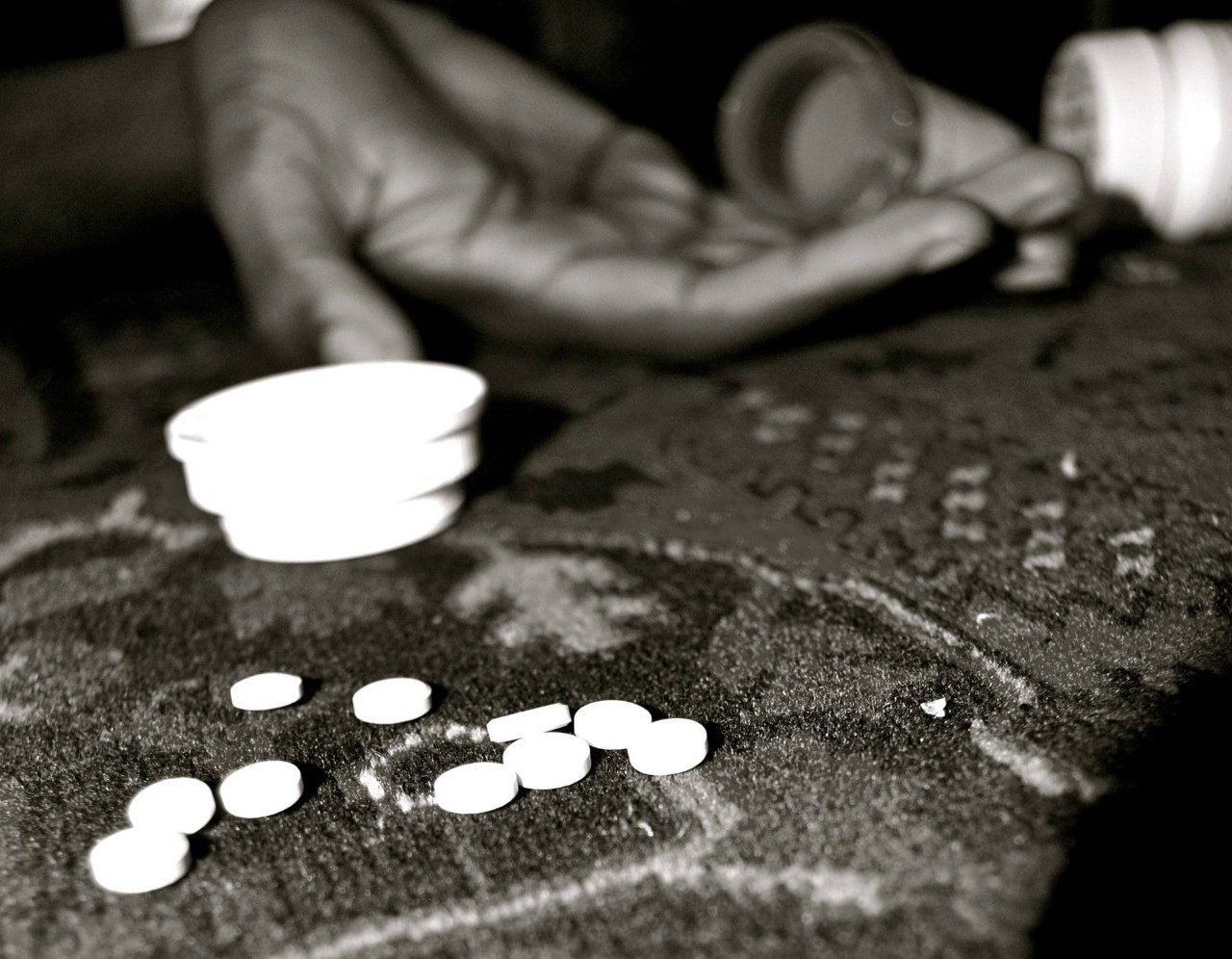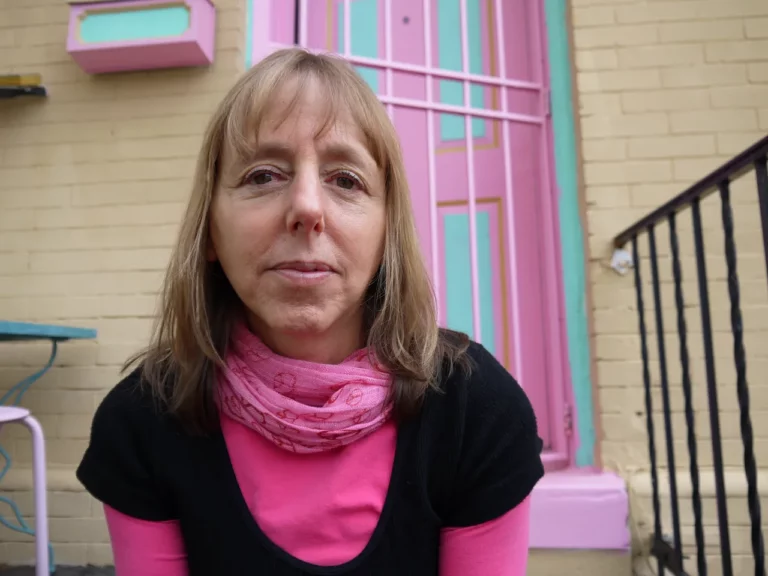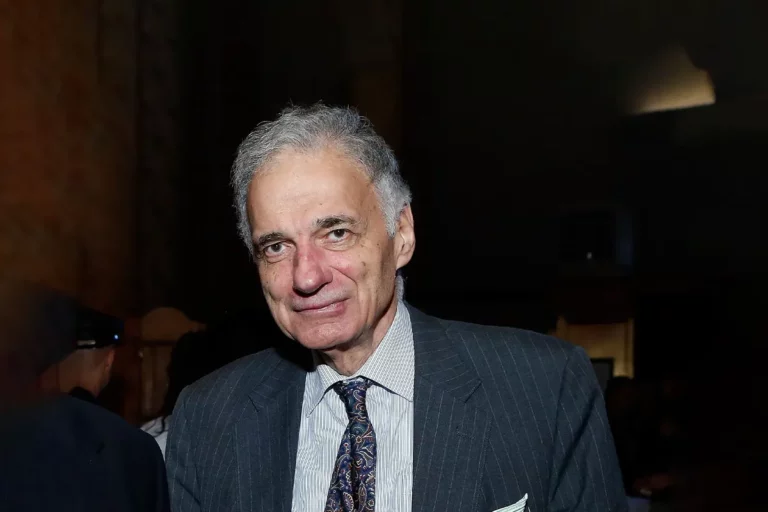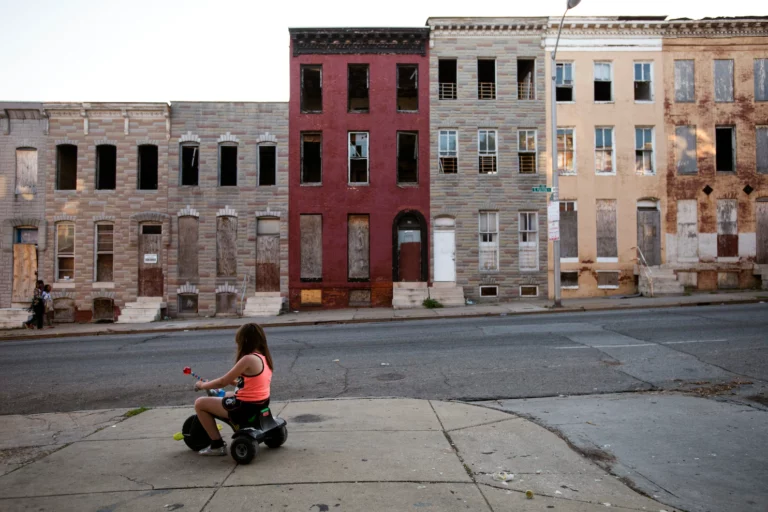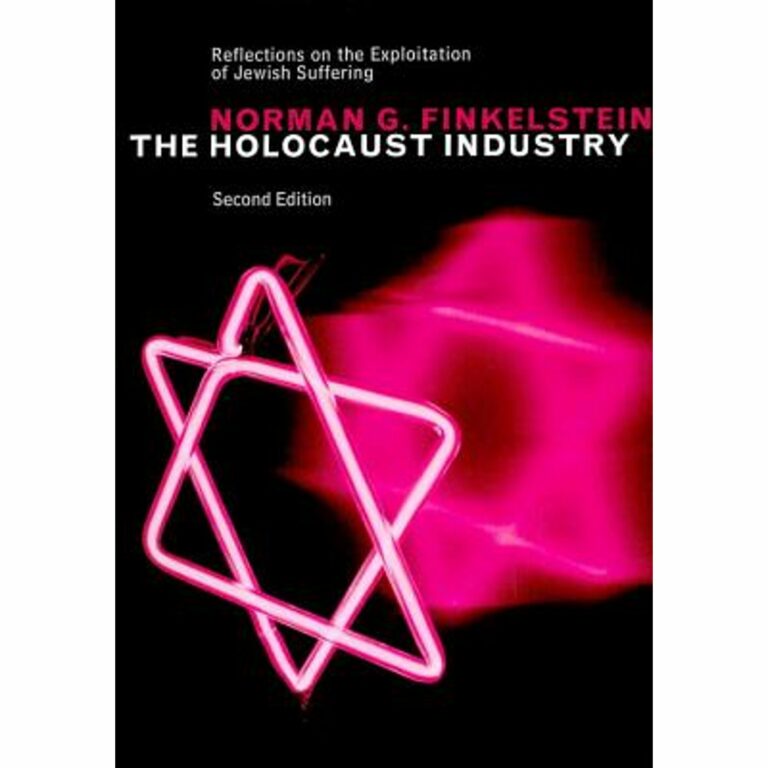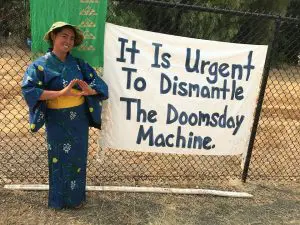Chasing the Scream: The First and Last Days of the War on Drugs – Johann Hari on RAI (2/2)
On Reality Asserts Itself, Mr. Hari tells Paul Jay that the conventional understanding of drug addiction is wrong, and alternative drug policy in Portugal and Canada can lead the way.
This is an episode of Reality Asserts Itself, produced March 6, 2015.
STORY TRANSCRIPT
PAUL JAY, SENIOR EDITOR, TRNN: Welcome back to The Real News Network. It’s Reality Asserts Itself, and I’m Paul Jay. We’re continuing our interview now with Johann Hari, who’s published a book he’s been working on for the past three years called Chasing the Scream: The First and Last Days of the War on Drugs. Johann has been a columnist for The Independent in London for nine years, and he’s written for The New York Times, The Guardian, The Nation, and lots more. Thanks for joining us again.
JOHANN HARI, WRITER AND JOURNALIST: Great to be with you, Paul.
JAY: So one of the things you try to explore in your book which I thought was quite interesting is the relationship of addiction to trauma. I mean, a lot of addiction seems to be almost a form of self-medication, people that are growing up in circumstances that are so unlivable. Talk a bit about that.
HARI: This blew my mind. I didn’t know any of this before I set off. And as we talked about before, I have a very personal investment in this. You know, we had very bad drug addiction in my family. And if you had said to me four years ago, say, what causes heroin addiction, I would have looked at you like you were a little bit stupid and I would’ve said, well, heroin causes heroin addiction. And for 100 years now we’ve been told a story about addiction that is so deeply ingrained in our culture that it seems like our common sense–it almost seems stupid to say it, right? So we think if you and me and the next 20 people who walk past this studio used heroin for 20 days, because there are chemical hooks in the heroin, at the end of that 20 days our body would physically need heroin, and that’s what addiction is, right? That’s what we believe. The first thing that pricked my awareness that it may not be true as what was explained to me by a doctor. If you and me step out here today and, God forbid, we get hit by a car and we break our hip, we’ll be taken to hospital, we would be given a lot of diamorphine. Diamorphine is heroin, much better heroin than the heroin you’d score on the streets in Baltimore, ’cause it’s 100 percent pure, as opposed to the street heroin, which is going to be, like, 5 to 10 percent pure. You’ll be given that diamorphine for a really long time, right? It’s happening in every hospital. Anyone watching this anywhere in the developed world, that’s happening in a hospital near you: people are being given a lot of heroin. You will have noticed your grandmother wasn’t turned into a junky by her hip operation, right?
JAY: I must say, though, when my mother was in the hospital late in life and they were so worried about addiction, they sometimes did leave her in pain, they were so afraid of how much they gave her.
HARI: It’s horrendous. Yeah. It’s based on a complete misconception about addiction. There are massive studies of this that show that medical use virtually never causes addiction. The reason, I discovered, is–I learned from talking to an incredible man called Bruce Alexander. He’s a professor in Vancouver who explained to me, the old theory of addiction, the one that we all implicitly believe, comes from a series of experiments that were done earlier in the 20th century. They’re really simple experiments. If your viewers are feeling a little bit sadistic, they can try them themselves. You get a rat and you put it in a cage and you give it two water bottles. One is just water and one is water laced with heroin or cocaine. If you do that, the rat will very rapidly become addicted to the drugged water and will almost always kill itself, right? There you go. Addiction. In the ’70s, Bruce comes along and says, well, hold on a minute. We’re putting the rat in an empty cage. It’s got nothing to do except use the drugs. Let’s do this differently. So Bruce built “Rat Park”. Rat Park is like heaven for rats, right? It’s good loads of cheese, it’s got loads of friends, it can have loads of sex, it’s got loads of colored balls and tunnels and everything rats like, right? And they’ve got both the water bottles, they’ve got their drugged water and they’ve got their normal water. And they try both, of course, ’cause they don’t know what’s in them. But here’s the fascinating thing. In Rat Park, they don’t like the drugged water. They hardly ever use it. None of them ever overdose. None of them ever use it in a compulsive way that looks like addiction. There’s a very interesting human example of this I can give in a minute. There’s loads of human examples. I actually think in Baltimore we are surrounded by them. But what Bruce says is this shows that both the right-wing theory of addiction and the left-wing theories of addiction are wrong. The right-wing theory of addiction is it’s a moral failing, you indulge yourself, you’re a hedonist. The left-wing theory is you get taken over, your brain gets hijacked, all of that. But Bruce says it’s not immorality, it’s not your brain; it’s your cage. Addiction is an adaptation to your environment. Why do people living shitty, disconnected lives, where they’ve got no meaning and they’re cut off from all the people around them become much more likely to become addicts than happy, connected–. We could be drunk now, right? Set aside the drug laws. You and me, these mugs, they could be full of vodka, right? They’re not. Why are we sober now? Because we’ve got something we want to do. We’ve got meaning of our lives.
JAY: Yeah, we choose not to.
HARI: Yeah. We’ve got [incompr.] bad choice. We’ve got purpose in our lives and we’ve got things we want to be present for.
JAY: No, but I’m saying the choice comes from that. We don’t feel some desperate need to do self-medicate.
HARI: Exactly. Exactly. And a really good human example happened to be happening exactly the same time as the Rat Park experiment, by coincidence. It’s called the Vietnam War. In Vietnam, 20 percent of American troops were using heroin regularly, right? And if you look at the news stories from the time, there’s a massive panic. They’re thinking–’cause they believe the old theory of addiction, they’re thinking, my God, we’re going to have hundreds of thousands of junkies on the streets of the United States when the war ends. What happens? They come home and the overwhelming majority just stop. They go to rehab, they don’t go into withdrawal, they stop, because if you’re taken out of a hellish pestilential jungle where you don’t want to be, you could be killed at any moment, you’re not with the people you know, and you go back to your nice life in Wichita, Kansas, with your friends, your family, and your job, it’s the equivalent of being taken out of the first cage and put into the second cage. Now, this has massive implications, partly for the drug war, ’cause the drug war–I think wider–the drug war is based on the idea that chemicals cause the problem and we need to physically eradicate these chemicals from the world. If in fact most of the people, the vast majority of people who use those chemicals don’t become addicted, if in fact you need a whole other component going on, well, then it makes much more sense to deal with that problem. And there’s a country that does this. I actually think it has much wider implications. You know, you look at history, there are moments when addiction spikes, right? The Native Americans suffer genocide. The traumatized survivors overwhelmingly become addicts. Right? In England in the 18th century, people are driven off the land, out of the countryside, into these disgusting urban slums. The gin craze happens, right? And that’s regarded as the crack of its day. Gin is regarded as this thing that hijacks you and takes you over. Why does crack happen in the ’80s? The destruction of industrial America, the destruction of the factories, the destruction of organized labor. Why do you get the meth epidemic in the ’80s and the ’90s? You had the destruction of rural America under Reaganism. Why are we seeing and an oxy crisis now? What’s happened since 2008 that might be causing a lot of distress, panic, and pain? So there is an underlying continuity where you see a spike in distress, and we’ve created a society where a significant number of our fellow citizens, including some people I love, can’t bear to be present in their lives. If we want them to be present in their lives, we have to make reality a lot better and we have to think about the fact that a hyper-individualistic, hyper-capitalist consumer-based society leaves a lot of people feeling that life just ain’t worth being present in.
JAY: I wish we had more time. So we’re going to–’cause there’s–I’m going to plug the book. I don’t always flog the book, but here I’m flogging the book. It’s really worth going into. We have a few more minutes. So where are some places they are trying to make reality a little more livable, particularly with more rational drug laws? And is it working?
HARI: It blew my mind. If I’m completely honest, I put off going to the places where the solutions are being tried, because I thought, if it doesn’t work there, if I go there and it doesn’t work, this will be the most depressing book ever written. But actually I was totally blown away by what I discovered. In the year 2000, Portugal had one of the worst drug problems in Europe. One percent of the population was addicted to heroin. They had a worse drug problem than Baltimore. And every year they tried the American way. They crack down harder, they punish people more. And every year the problem got worse. And one day the prime minister and the leader of the opposition got together and they said, look, let’s just set up a panel of scientists and doctors to figure out what the hell we’ll actually do with this, and let’s agree in advance that we’ll abide by whatever they recommend. So they just took it out of politics ’cause the crisis was so bad. The panel comes back and says, decriminalize everything, from cannabis to crack. But–and this is the crucial second point–take all the money we currently spend on arresting drug users, trying drug users, imprisoning drug users, take all that money and spend it on incredibly good drug treatment. And that’s not what we generally think of when we think of drug treatment in America and Britain. Part of it is residential rehab and psychological support, which is great. And they do do that. But, actually, the biggest part of it was learning the lesson of Rat Park. It was reconnecting addicts with the society. And the biggest part of it was just subsidize jobs. Say you were a smack addict, right? Your life fell apart. You used to be a mechanic. Once you’re ready, they’ll go to a garage and they’ll say, if you employ this guy for a year, we will pay half of his wages. So just the goal was to make sure that every addict in Portugal had something to get out of bed for in the morning, had a purpose and meaning in life. And the results have been–the results are in. It’s been nearly 15 years, 14 years now. Injecting drug users down by 50 percent, five-zero percent. Every study shows addiction is massively down, overdoses massively down, HIV transmission is massively down among addicts. And one of the ways you know it’s been such a success–one of the most moving interviews I did was with a guy called João Figueira, who was the leader of the opposition to the decriminalization, who was the top drug cop in Portugal. And he said a lot of the things that a lot of your viewers would be perfectly reasonably thinking. Surely if you decriminalize all drugs, there’ll be a massive increase in use, there’ll be chaos. And what he said to me–I’m paraphrasing, his exact words are the book, but he said, everything I said would happen didn’t happen and everything the other side said would happen did. And he talked about how he actually felt ashamed that he’d spent 20 years before the decriminalization arresting and harassing drug users, and actually there was a much better way, and he hoped the whole world followed his example. I don’t want to get too Billy Graham on you, but I do kind of feel like I’ve seen the future and it works. You know? This is something that could be done here in the United States. Now, the Portuguese model is not perfect. They’ve decriminalized use. But they haven’t–there’s no legal access to the drugs. So what you’ve dealt with is–the crudest way to put it is they don’t have Orange Is the New Black anymore, but they still have Breaking Bad. You still have to go to armed criminal gangs to get your drugs.
JAY: Oh. So there’s no heroin maintenance program, this sort of thing.
HARI: They’ve got methadone maintenance. I went to countries where they had in fact legalized, as opposed to decriminalized–very interesting example in Switzerland. I’m a Swiss citizen as well as a British citizen, through my father. And Switzerland is a really right-wing country. My Swiss relatives make–they make Mike Huckabee look like Bernie Sanders, right? These are really right-wing people. And they voted in referenda by huge majorities to legalize heroin. It’s fascinating. And they did it for a very simple reason. The way it works is, if you’re a heroin addict in Switzerland, go to a doctor, and if they believe you’re a heroin addict–and they almost always do–they’ll send you to a clinic. You go every morning and you can inject your heroin there. They’ll give you the heroin, and you inject it there. You can’t take it out with you. And the results have been incredible. Burglary massively fell. Street prostitution just ended. Muggings and street robbery massively fell. Disease transmission massively fell. Swiss people didn’t vote for this, ’cause they’re lovely and compassionate towards drug users. I have an uncle who, when I said to him I was writing a book about the drug war and drug addicts, he said, oh, I know what we should do about drug addicts: we should make them dig their own graves and then shoot them into the graves. Is that what your book will say? And I had to say, not quite. This is like Utah voting to legalize heroin, not San Francisco voting. And, crucially, you cut out the dealers. They’re gone. That kind–.
JAY: So there’s great material on Swiss, Portugal. You have some other examples. And we only have a couple of minutes left. So two things. Why has this been almost ignored by mainstream media in the United States, these examples? You still have tons of reporting on drug busts and this and that. Like, the media itself still so buys into the underlying assumptions of the war on drugs. But also, why in jurisdictions, other European jurisdictions, or a place even like Canada, other places, why aren’t other people adopting this? What’s holding all this back?
HARI: Well, Canada has–and I tell the story of–perhaps the most inspiring story in the book, I think, for me, anyway. It was the story of a man called Bud Osborn. But I’ll try to tell it quickly. Bud Osborn was a homeless street addict on the streets of the Downtown Eastside of Vancouver, which had the worst concentration of addicts in North America. And he was watching his friends die all around him. People would use behind dumpsters so the police wouldn’t see them. But, of course, if the police can’t see you and you OD, no one can see you die. And Bud thought, I’ve got to do something about this. But he also thought, I’m a homeless junkie; what can I do? And he had a really simple idea. Bud just said, why don’t we arrange the addicts? And he got them together and he said, when we’re not using–’cause, of course, most people aren’t using most of the time–let’s just patrol the alleyways, and when we spot someone OD-ing, we’ll call an ambulance. Really simple. They did it. And within a few months, the overdose rates started to really fall, which was great in itself. But the addicts started to think–it affected how the addicts thought of themselves, and they thought, oh, maybe we’re not the pieces of shit everyone says we are. Maybe we’re people who can save lives. They started to turn up at public meetings about the addict problem, and they’d sit at the back, and after a while they’d put up their hand and go, I think you’re talking about us. Is there anything we could do differently? And sometimes people were angry. Some people would say, well, you leave your needles lying around. And Bud was like, fine; we’ll go and pick up the needles; it’s okay. So they started doing that as well. Then Bud learned that in Frankfurt in Germany, they’d opened legal injecting rooms, where you could go and use your drugs, and it massively brought down the overdose rate. And they said, right. We’ve got to have this never happen in North America since Anslinger began. We’ve got to have this. So they started stalking the mayor of Vancouver, a man called Philip Owen, who was a right-wing businessman–picture Mitt Romney, basically–who said that addicts should be taken and detained at a local military base. After two years, they followed Philip Owen everywhere he goes, carrying a coffin, and it says something like, who will die next, Philip Owen, before you open a safe injecting room? And they do this. And two years go by, they’re a bit demoralized. And one day, totally to his credit, Philip Owen just says, who the hell are these people?
JAY: And he gets–I know the story. And he gets won over to this. But they don’t do heroin maintenance program.
HARI: They do. So he goes and meets a load of addicts on the Downtown Eastside. He opens the first safe injecting room in North America. Amazing. And it’s been ten years now, and the results are incredible. Overdoses down by 80 percent. They started the first heroin maintenance program in North America, the NAOMI program. Average life expectancy in Vancouver has improved–sorry, in the Downtown Eastside, has improved by ten years since they started that. That’s crazy figures. I mean, you don’t get figures like that except at the end of a war.
JAY: They are doing heroin maintenance now.
HARI: They’re doing heroin maintenance. And, you know, it was really moving to me. Bud died last year, and he was only in his early 60s, but he’d been in a homeless addict during the drug war. It takes a toll on you. And when he died, they sealed off the streets of the Downtown Eastside where he had lived as a homeless person. And there were loads of people in the crowd for his memorial. And a lot of them knew that they were alive because of what he’d begun. And what I would say to any of your viewers who are watching this–and you think, you know, this is such a big issue, there’s nothing we can do, we all feel powerless sometime, I want to say to those people, you are so much more powerful than you know. Bud was a homeless street addict. It’s hard to think of a more disempowered person in our society. He started a revolution that saved thousands of people’s lives. The Canadian Supreme Court has now ruled, as a direct result of his activism, that addicts have an inalienable right to life, and that includes a safe injecting space, right? They’re never going to be able to take that back now. We can end this thing. The one thing you can say about the drug war in its defense is we gave it a fair shot, right? We’ve done this for 100 years. Alternatives are being tried all over the world. They work. You know? And we’ve just got to–you talk about how the media doesn’t cover this. How do these things ever change? People band together. Through activism we demand a change, right? A hundred street addicts managed to do it in Vancouver. You know, I was just in New York, staying near the Stonewall Inn. In 1963, a bunch of drag queens gathered there. Two thousand years, gay people have been treated as disgusting. The defenders of gay people in 1963 said they’re sick. But that was the way of defending them was to say they’re not evil, they’re sick, right? That was the pro-gay position. Some of those people lived to see the introduction of gay marriage, something they didn’t even ask for in 1963. It would have seemed like you or me saying, we want to live on the moon and smoke crack there. You know, like, it would have seemed crazy. Things get unimaginably better if people demand them. And I’m actually incredibly optimistic about this. The drug war is a disaster. Virtually no one defends it. The alternatives work incredibly well. I think we’re going to live to see these this change.
JAY: Okay. Well, thanks very much for joining us.
HARI: Thank you so much for having me.
JAY: Johann Hari, Chasing the Scream: The First and Last Days of the War on Drugs. Thanks very much for joining us on Reality Asserts Itself on The Real News Network.
END
Podcast: Play in new window | Download
